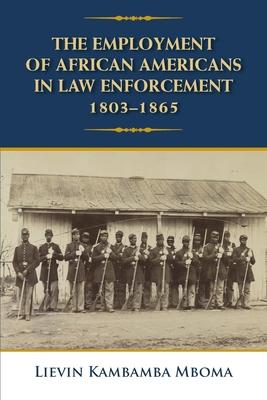+"The EMPLOYMENTOF AFRICAN AMERICANS IN LAW ENFORCEMENT, 1803-1865," examines pertinent primary source and secondary data on police, justices of the peace, and militia duties entrusted to African Americans in Louisiana and in selected Northern states before the Civil War and during the Civil War. In addition, the book discusses African American's little known criminal justice appointments in the plantation regimes, their military police work, and spying missions. The book adeptly challenges the misconception that African Americans were not employed as lawmen prior to the Civil War. Through the discussion of major African American lawmen, Wentworth Cheswell, Captain William Ledesdorff, Macon Bolling Allen, and Robert Morris, the integrality of African Americans to the antebellum legal system is thoroughly examined. This work has major implications for understanding the historical role of the race in the American legal system.

The Employment of African Americans in Law Enforcement, 1803-1865
+"The EMPLOYMENTOF AFRICAN AMERICANS IN LAW ENFORCEMENT, 1803-1865," examines pertinent primary source and secondary data on police, justices of the peace, and militia duties entrusted to African Americans in Louisiana and in selected Northern states before the Civil War and during the Civil War. In addition, the book discusses African American's little known criminal justice appointments in the plantation regimes, their military police work, and spying missions. The book adeptly challenges the misconception that African Americans were not employed as lawmen prior to the Civil War. Through the discussion of major African American lawmen, Wentworth Cheswell, Captain William Ledesdorff, Macon Bolling Allen, and Robert Morris, the integrality of African Americans to the antebellum legal system is thoroughly examined. This work has major implications for understanding the historical role of the race in the American legal system.